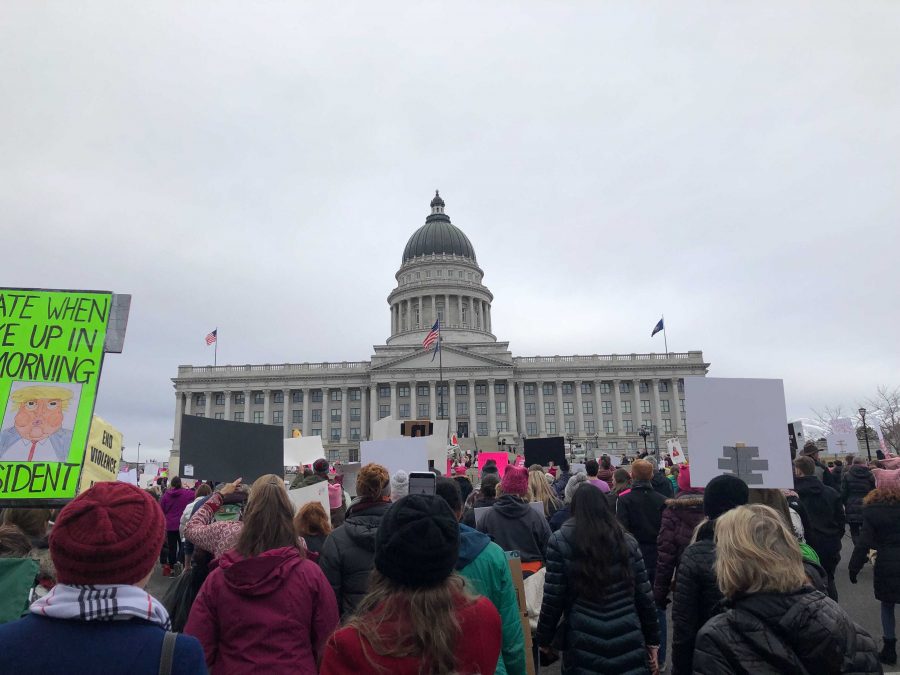The 2019 Women’s March has been roiled by accusations of anti-Semitism and questions about the effectiveness of public protests. Regional and local marches also struggled with the appropriateness of marching despite controversial revelations about some national organizers and the large proportion of white women attending marches that were billed as intersectional. Some cities, like Eureka, CA, decided to cancel their march rather than protest without the benefit of minority voices. Other cities, like New Orleans, decided to cancel their march because “the controversy is dampening efforts of sister marches to fundraise, enlist involvement, find sponsors and attendee numbers have drastically declined this year.” It’s not just New Orleans that experienced a decline in attendance— according to CBS News, this year’s Women’s March in Washington, D.C drew 10,000 protestors, a marked decrease from the first Women’s March in 2017 where at least 470,000 people attended the protest, according to The New York Times.
Despite the controversies and lower attendance, protesters around the country still marched on Jan. 19, 2019. Hundreds marched from Washington Square Park to the Utah State Capitol Building, and I marched with them. Everyone who marched in the Women’s March on Utah 2019 had to grapple with the question of whether the Women’s March was still worthwhile, and every one of them answered “yes” for varying reasons.
I marched despite the controversies because my protest is not dependent on the national organization which organized the march. I am disgusted by the anti-Semitism exhibited by the most prominent organizers of the Women’s March on Washington, but I believe that the March has grown beyond them. The sister marches in cities around the United States are independent of the national organization— the idea might have originated with the original co-founders, but it is not theirs alone.
I marched because intersectional feminism has to include Jewish women who have been marginalized and persecuted throughout the history of the Jewish people. Current Israeli policies cause some women to say that you can’t be a feminist and a Zionist, and disagreeing about the morality of the existence of Israel isn’t anti-Semitic. Claiming that “Jewish people bore a special collective responsibility as exploiters of black and brown people” and that “Jews were proven to have been leaders of the American slave trade,” as Carmen Perez and Tamika Mallory (two of the founders of the Women’s March on Washington) are reported to have claimed, is deeply anti-Semitic. There is no room for such hatred in a feminist movement, so I marched in solidarity with Jewish women and with all other people who have been stereotyped, discriminated against or marginalized because of their religion, race or culture.
I marched because I believe women. I have never been denied an opportunity or talked down to because of my gender, but I know that other women have. I have never been the victim of domestic or reproductive violence, but I know that other women have. I have never been assaulted or raped, but I know that other women have. The past few years have brought increased scrutiny of the ways that men abuse their authority over women to harass, rape and assault them. Despite thousands of women saying #MeToo, so many people refuse to believe women. That was enough for me to march.
I marched because I believe that, despite the progress in gender equality that we have seen in the past century, women still are not considered equal to men. Girls are still told that “boys will be boys” when their male classmates harass them by snapping their bra straps. Female students are still told to change their clothes because they might distract boys. Women are still fired or passed over for promotions because they are pregnant. Women’s safety is still treated as a political non-issue— for example, the Violence Against Women Act expired due to the 2018-2019 government shutdown. Women are still forced to hear their leaders say that they “grab [women] by the pussy.”
The march to equality isn’t over, so it’s no wonder why women still march.


